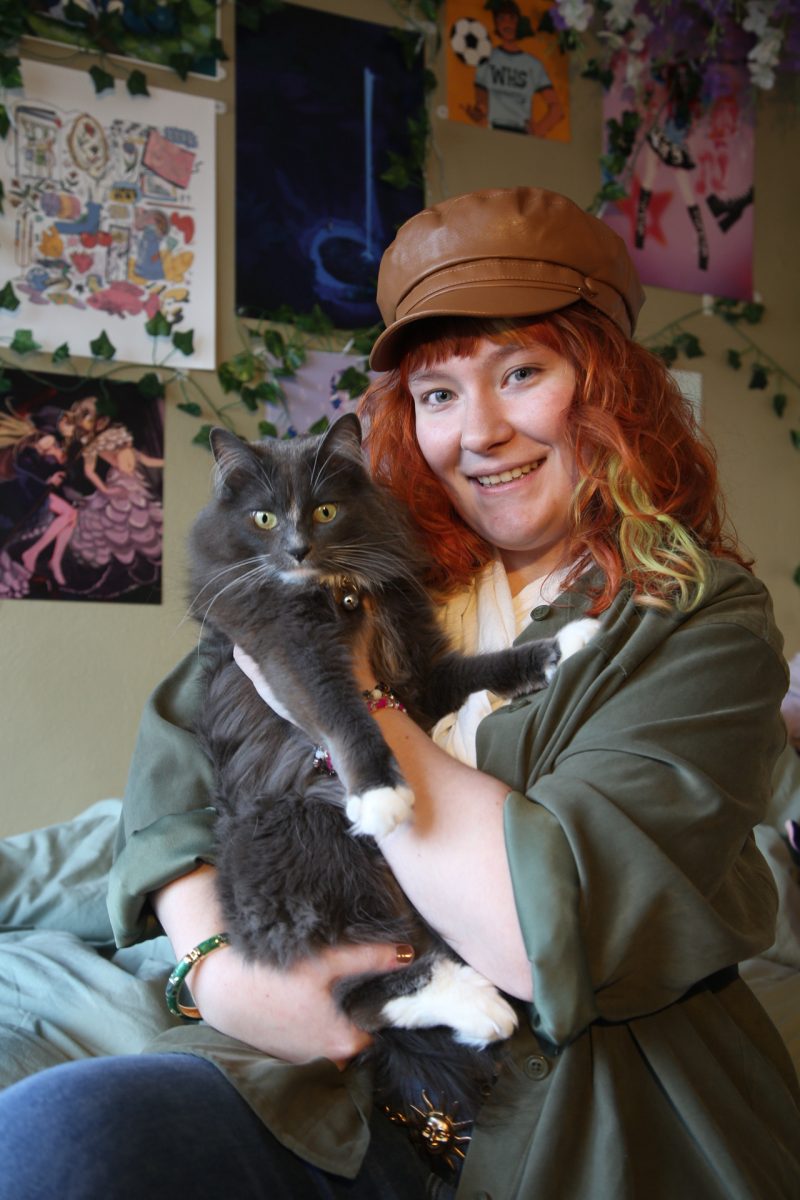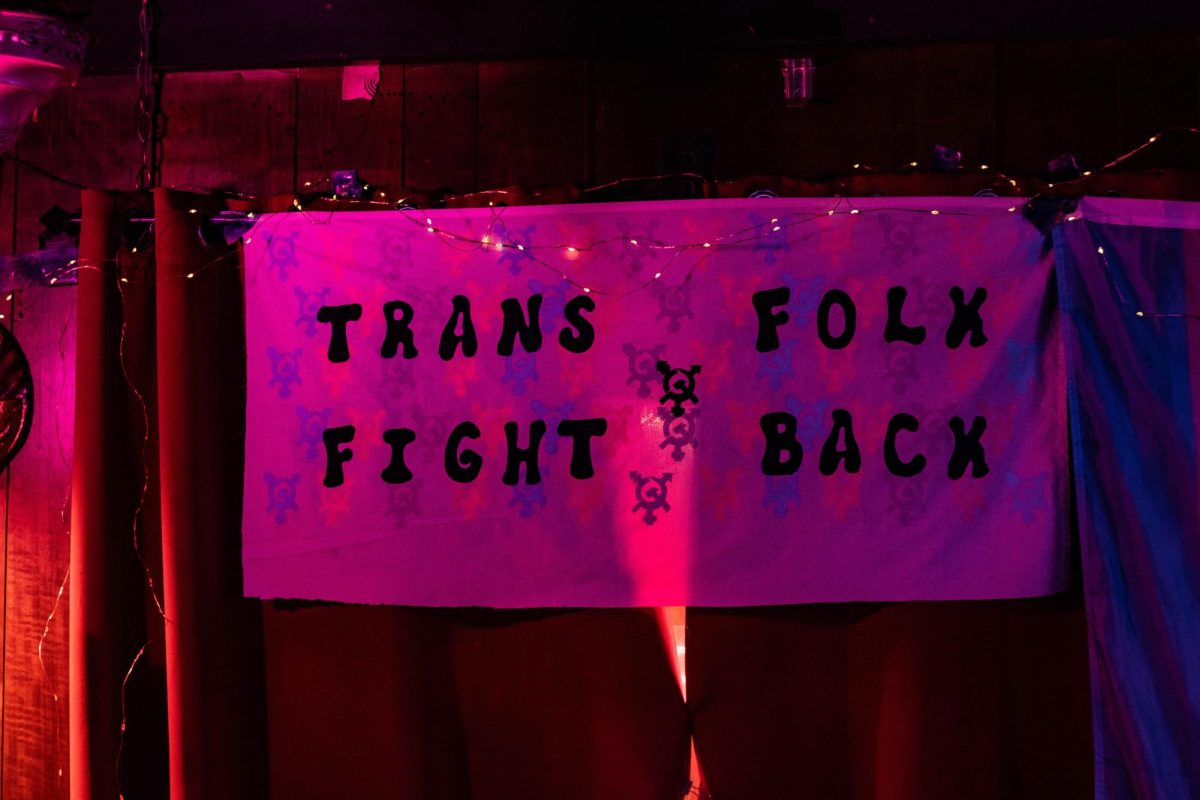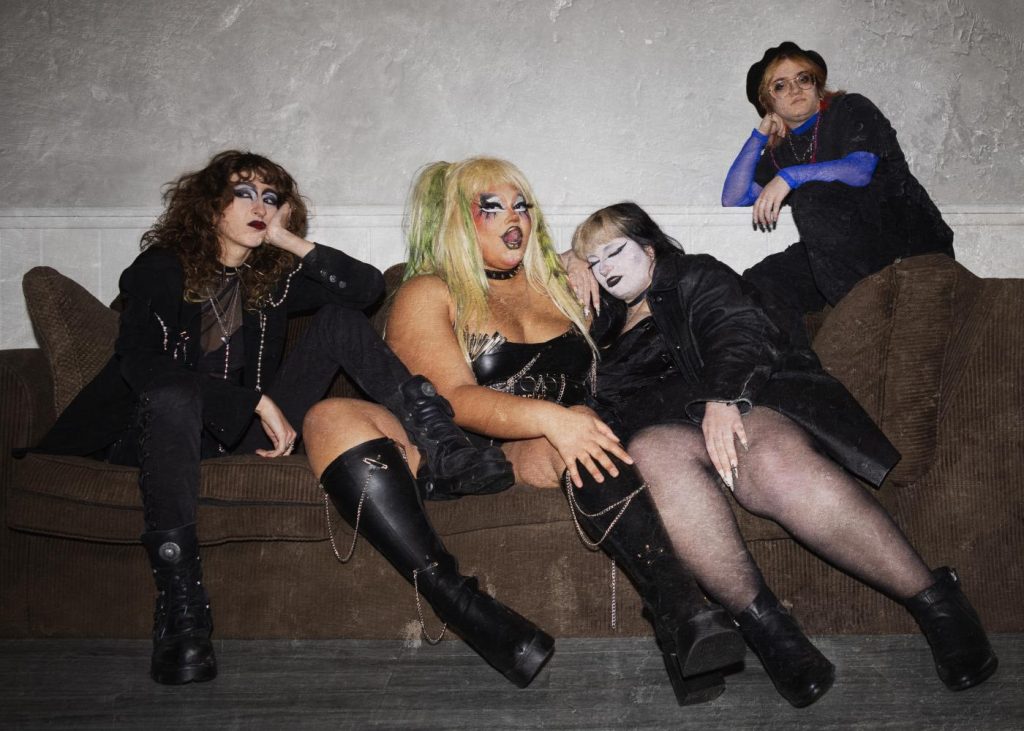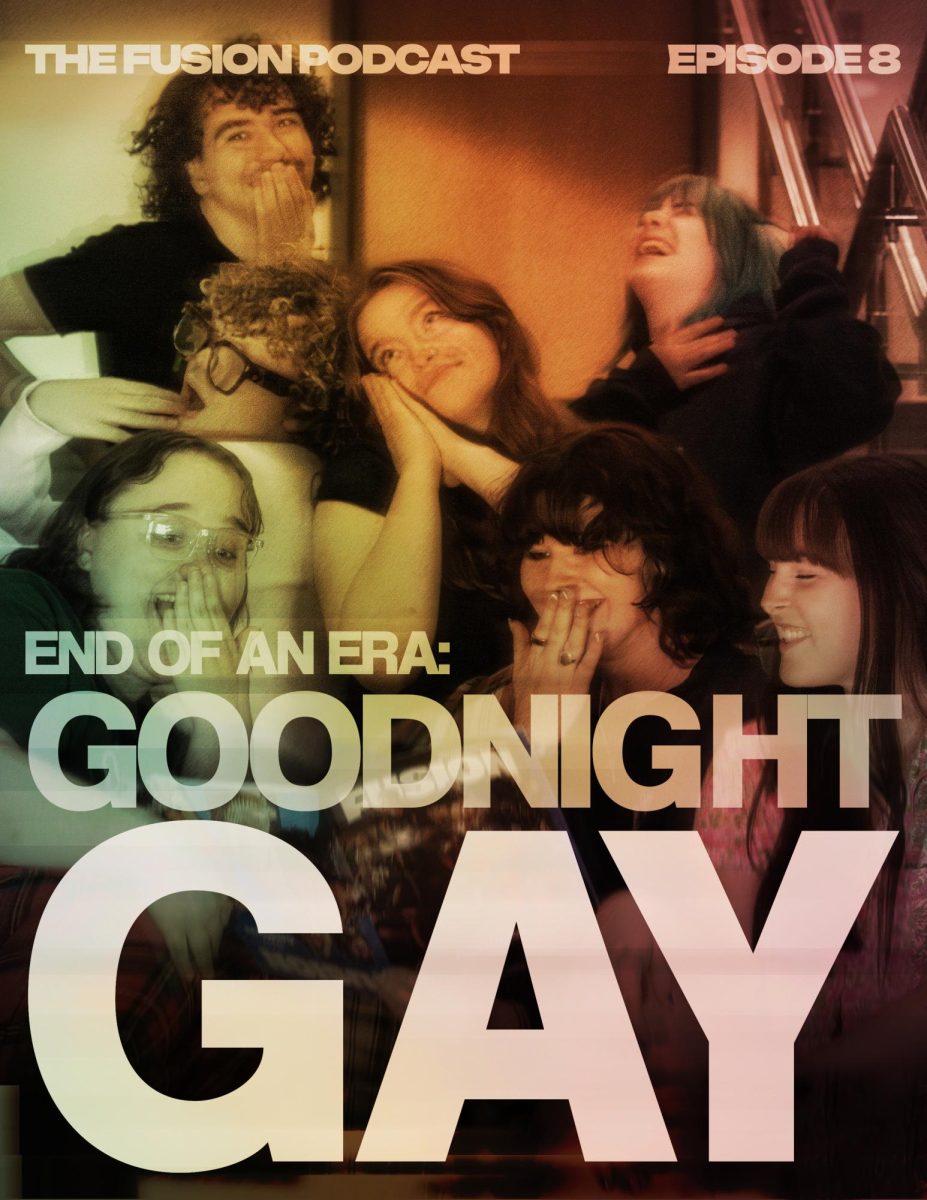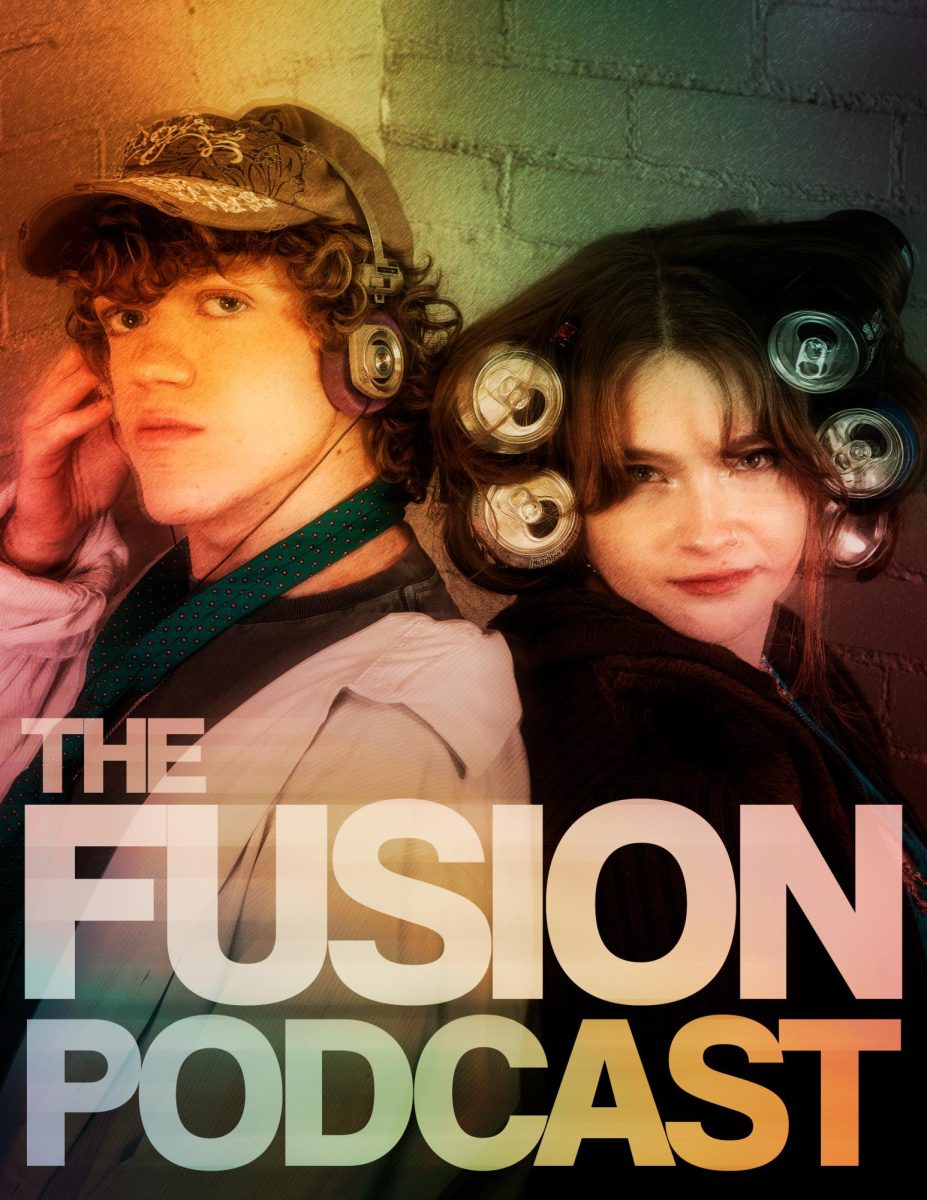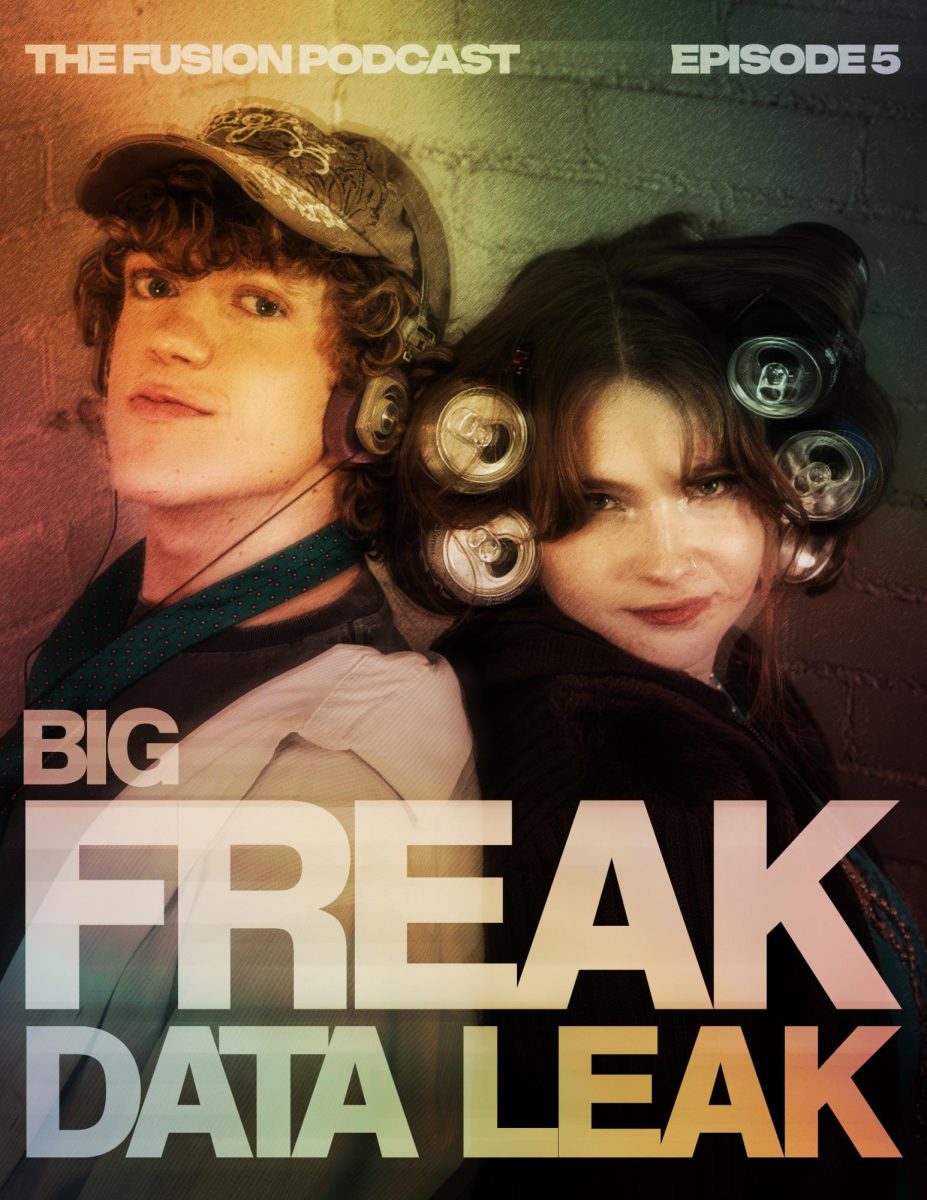As part of a corporate environment in which a debate persists over the relevancy and effectiveness of diversity training, Residence Services follows its own path in preparing resident assistants to be knowledgeable about uniquely LGBTQ issues.

By Simon Husted
When Wes Fisher first applied to become a resident hall assistant five semesters ago, he didn’t have a clue what the acronym LGBTQ stood for or whom it represented.
“In high school, they never taught anything about gays and lesbians,” Fisher says. “I learned a lot from the diversity classes and leadership program Residence Services offered.”
Two weeks into this semester, one of Fisher’s residents came to him to vent about an incident that had incited his concern. Fisher’s resident had recently come out to his roommate as bisexual. The roommate took the news casually, but the resident said a day or so afterward, a group of his neighbors asked him if his roommate had beaten him up yet. Fisher, understanding the situation with a sense of empathy, helped convince the resident their comments were likely baseless and his roommate was no threat. He was right.
“As an African-American myself, I sort of understand the worries LGBT residents have about living with people they’re meeting for the first time,” Fisher says.
Residence Services training is more than just stuffing a rule book down an RA’s throat. As area coordinator Jill Church explains, the training also places equal emphasis on teaching RAs to honor human differences. That explains all the workshops and training exercises RAs go through on an annual basis. Each year, RAs undergo a week-long session prior to the beginning of the academic year, training of some type in the middle of the fall, several day-long training sessions before spring semester and finally another day dedicated to even more training in the middle of spring. This all comes after more than 20 hours of training the RA applicants experience during the Leadership In Student Affairs, or LISA, program.
LGBTQ diversity training, while it’s only one of many areas Residence Services addresses in its emphasis on human differences, is a big focus. Several “mock hall” exercises, a 50-minute training workshop and even an entire two-and-a-half-hour LISA class are dedicated to the discrimination and harassment LGBTQ students may face in the residence halls, Residence Services coordinator Josette Dau says.
Unlike big companies that invest millions of dollars to hire instructors, supply equipment and facilitate diversity workshops, Residence Services spends far less. Aside from the cost of office supplies, no money is budgeted specifically to diversity programs. Residence hall directors and assistant residence hall directors instruct the workshops and classes, Church says.
The inclusion of LGBTQ diversity training is not a practice exclusive to Kent State, either. More than 552 of America’s largest companies offer LGBTQ diversity training, according to the 2010 Corporate Equality Index, a business survey conducted by the Human Rights Campaign each year.
Recently, however, some studies have found that diversity training in institutions and companies is not as effective for the workplace as once thought. One study conducted by three sociologists, Frank Dobbin at Harvard, Alexandra Kalev at the University of California at Berkeley and Erin Kelly at the University of Minnesota, is helping to change the wider perception of the value of diversity training. According to an April 2007 Time magazine article, the three researchers looked through decades of data and found no real change in the growth rate of minorities or women earning management positions after a company began practicing diversity training.
Some diversity educators, such as Carmen Van Kerckhove, president of the diversity education firm New Demographic, believe the real reason companies and institutions continue implementing diversity training is to avoid discrimination or harassment lawsuits. “Companies are twice as likely to invest in diversity training than any other type of diversity initiative because their real motivation is to mitigate risk,” she wrote in a June 2009 blog entry. “If a company gets sued for racial discrimination, it can point to its diversity training program as a good faith effort to eliminate racial discrimination and hopefully win the lawsuit.”
But there’s a fundamental difference between Residence Services’ training programs and a company such as General Electric practicing diversity training.
“We give these classes because they benefit the RAs,” Residence Services coordinator Kimberly Ferguson says. “When you work with students, you must be open-minded and accepting of everyone, no matter what their backgrounds are.”
Most of the data Dobbin, Kelly and Kalev studied were diversity programs implemented to improve co-worker-to-co-worker relationships. The diversity training Residence Services provides seeks to help staff and resident assistants better communicate and cooperate with their residents. So while diversity training may be more relevant to the jobs of residence hall directors and resident assistants, does that mean it works?
Dobbin criticized the practice of making diversity training mandatory in his diversity training study. For the training Residence Services provides, however, the problem may just be the opposite.
In 2009, two different exercises were aimed at teaching RAs about the LGBTQ community. The first exercise was a LISA class. Because resident assistant applicants were only allowed one excused absence (with documentation) from a LISA class, the LGBTQ lesson was virtually mandatory. The second exercise was a LGBTQ workshop offered along with six other workshops. Because of time constraints, RAs were limited to selecting only four of the seven workshops, making that LGBTQ workshop voluntary. About 120 people comprised of resident assistants, student receptionists and security personnel attended the workshop, says John Campbell, an assistant RHD who instructs the LGBTQ workshop. About 200 people participated in the diversity workshops, Campbell says.
But most students who took the 50-minute workshop didn’t find it all too enlightening.
“The (50-minute) workshop was more like a mind refresher,” says Samantha Lorenzen, a RA in Centennial Court F.
Like Lorenzen, RAs who are already acquainted with the LGBTQ community are most likely to take part in the workshop than those who aren’t.
“I’m from Columbus, and there are gay people everywhere there,” says Melissa Hosom, an Olson Hall RA, who attended the LGBTQ workshop in August 2009. “I was pretty well adjusted to the gay community (at Kent State) when I got here.”
Campbell says they try to focus on the attendees who may not know much about the LGBTQ community. “We generally assume a ‘no knowledge base’ because we want to ensure all student staff members have a general understanding of diversity issues,” Campbell says. Chris Walker, a Johnson Hall RA, didn’t attend the 50-minute workshop, but he did learn a lot from his LISA class. The learning experience he remembers most was when the class had to match LGBTQ terms to their definitions.
“I had a hard time matching the correct definitions for transgender, transsexual and transvestite,” Walker says. “Before the lesson, I wasn’t aware there was that great of a difference.”
Diversity training offers varying effectiveness for different resident assistants. Some, like Hosom and Lorenzen, say they didn’t walk away any more knowledgeable about LGBTQ issues than before. But the workshops and lessons are proving effective for others, like Walker and Fisher.
And it’s paying off for some LGBTQ hall residents who have found no incident in which their RA has treated them unfairly.
“I love my RA,” says Will McSuley, sophomore Spanish major and Lake Hall resident. “I’m sure he knows I’m gay, and yet he treats me no differently from anyone else.”
Simon Husted is a freshman electronic media management major.
(This article originally appeared in the Winter 2009-10 print edition.)
















